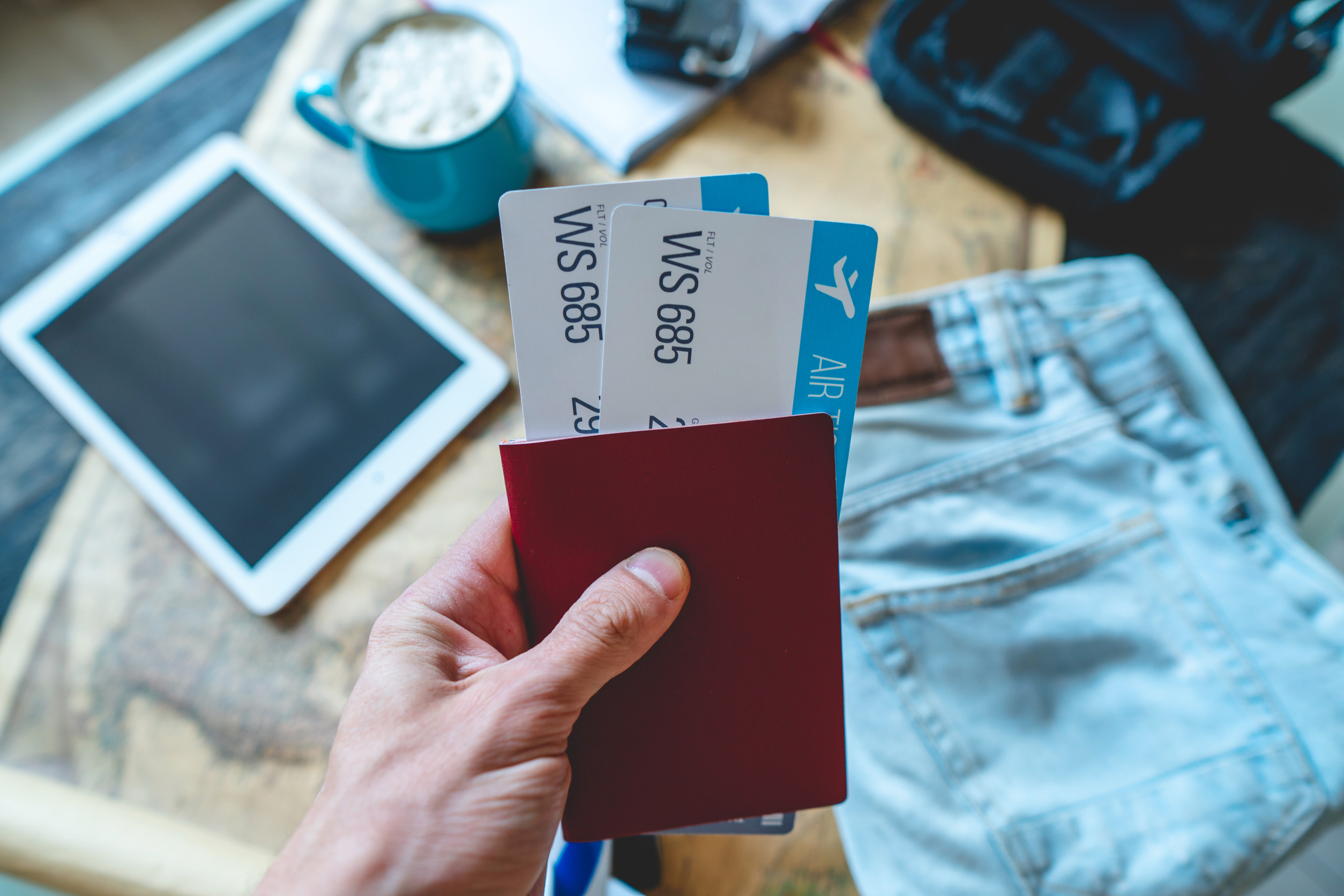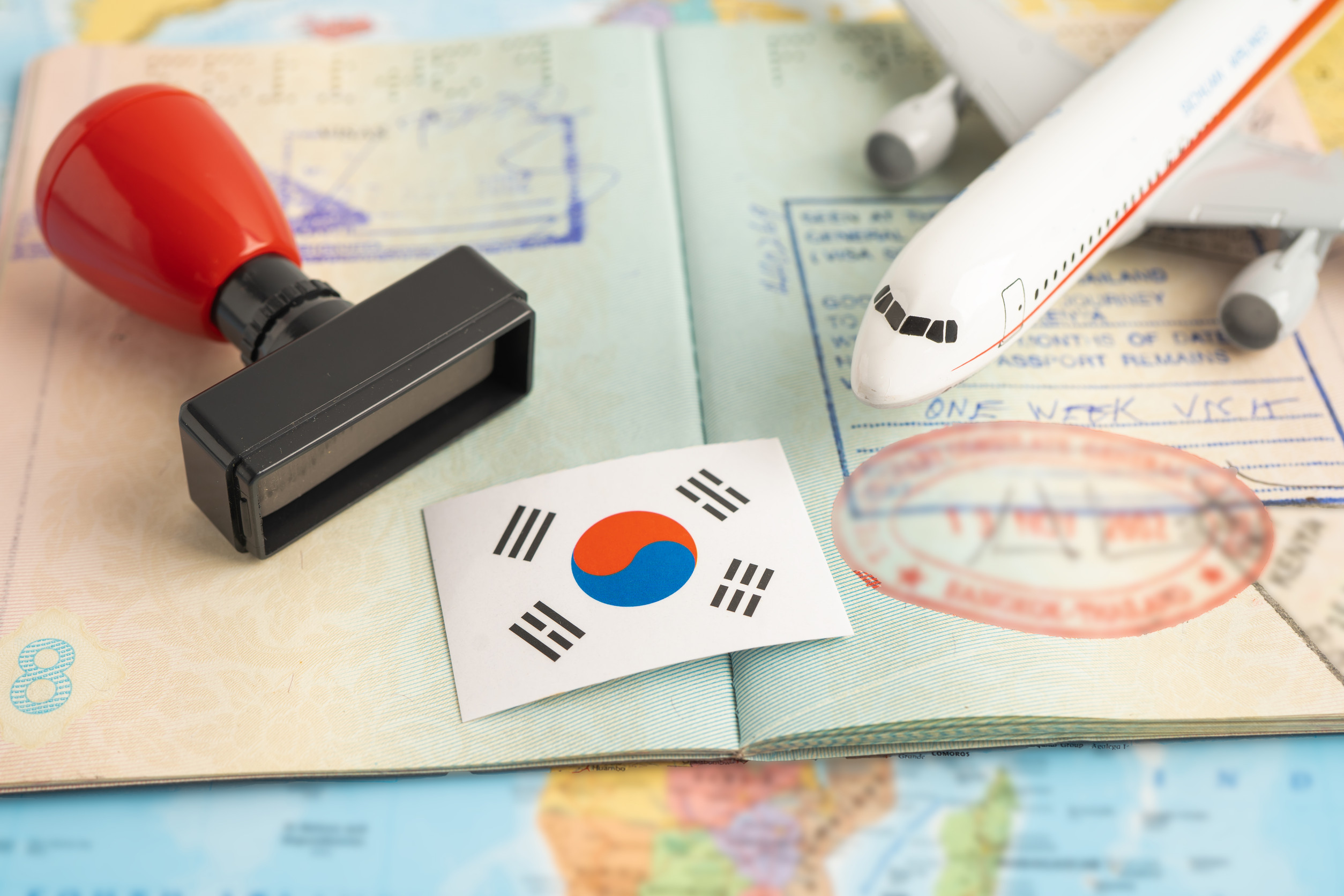K-ETA for Business Visits to South Korea
The K-ETA (Korea Electronic Travel Authorization) is primarily for short-term visits to South Korea for tourism, business, or other purposes that do not involve long stays or employment. It is available to citizens of eligible countries and allows travelers to stay in South Korea for up to 90 days.
Using K-ETA for Business Visits:
- Short-Term Business Activities: You can use the K-ETA for short-term business purposes such as attending meetings, conferences, negotiations, or business events. However, it is not suitable for activities such as establishing a business, working for a South Korean company, or engaging in long-term investments.
- Eligibility: Nationals of countries eligible for the K-ETA can apply for it online, making it a more convenient and faster option for those traveling to South Korea for business-related activities.
Limitations
- Not for Employment: The K-ETA is not for engaging in employment or long-term business operations within South Korea. For such activities, a business visa (e.g., C-3, D-8) is required.
- Short-Term Only: K-ETA is valid for up to 90 days and typically for business visits that do not require extensive business operations.
If you plan on engaging in extended business activities or investment in South Korea, you will need a proper business eTA instead of the K-ETA. Always check eligibility and the specific requirements based on your nationality and the purpose of your visit.
Eligibility for a South Korea Business eTA
To be eligible for a South Korea Business eTA, applicants must meet the following criteria:
Purpose of Visit: The eTA is intended for business-related activities, such as attending meetings, conferences, or negotiating contracts.
Valid Passport: Your passport must be valid for at least six months beyond your planned stay in South Korea.
Sponsorship: A letter of invitation from a South Korean company or organization may be required to confirm the purpose of your visit.
Financial Stability: Proof of sufficient funds to cover your stay, such as bank statements, may be required.
Employment Status: You should be employed or engaged in a business venture in your home country or elsewhere.
No Criminal Record: A clean criminal background is necessary for eTA approval.
Types of South Korea Business eTAs
South Korea offers various types of business eTAs depending on the nature and duration of your visit. The main types include:
|
Type |
Description |
|
C-2 (Short-Term Business eTA) |
|
|
C-3 (General Business eTA) |
|
|
D-8 (Corporate Investment eTA) |
|
|
D-9 (International Trade eTA) |
|
|
D-10 (Job-Seeking eTA) |
|
Requirements for a South Korea Business eTA

The specific requirements for a South Korea Business eTA may vary based on the type of eTA you are applying for, but the general requirements typically include:
- eTA Application Form:A completed eTA application form, which can be downloaded from the South Korean embassy or consulate website.
- Valid Passport:Your passport must be valid for at least six months beyond your intended stay in South Korea and must have at least two blank pages.
- Passport-sized Photographs;Two recent passport-sized color photos, usually with a white background.
- Invitation Letter:A letter of invitation from a South Korean company or business partner detailing the purpose and duration of your visit. The letter should be signed and include the inviter’s contact details.
- Business Registration:A copy of the business registration or legal documents of the inviting company in South Korea to prove the legitimacy of the business relationship.
- Proof of Financial Stability:Bank statements or other financial documents showing sufficient funds to cover your stay, including travel expenses and accommodation.
- Flight Itinerary:A copy of your round-trip flight reservation, showing entry and exit dates from South Korea.
- Accommodation Details:Proof of where you will stay during your visit, such as hotel reservations or an invitation letter from a host.
- Employment Letter:A letter from your employer (if applicable), confirming your employment status and the purpose of the business trip.
- eTA Fee:Payment of the applicable eTA fee, which varies depending on the eTA type and duration.
- Health Insurance:Proof of travel health insurance covering your stay in South Korea may be required by some consulates.
- Additional Documents:Depending on your nationality and the specific type of business eTA, additional documents such as tax returns, professional qualifications, or a criminal background check may be requested.
Application Process for a South Korea Business eTA
The application process for a South Korea Business eTA generally involves the following steps:
Choose the Right eTA Type
Depending on your purpose, you’ll need to choose between different eTA categories like the C-2 (short-term business) or D-8 (investment) eTA.
Prepare Your Documents
Gather the necessary paperwork, which typically includes a completed eTA application form, your valid passport, passport-sized photos, an invitation letter from a South Korean company, business registration documents, financial proof, and a travel itinerary.
Pay the eTA Fee
eTA fees depend on the type of eTA and your nationality. Make the payment when submitting your application. Fees may vary by consulate.
Submit Your Application
Submit the required documents at the nearest South Korean consulate or embassy. Some consulates may accept online submissions, so check ahead.
Wait for Processing
Processing time generally takes about 1-6 Working Days. Once your eTA is approved, pick it up from the consulate, ensuring all details are correct.
Processing Time for a South Korea Business eTA
The processing time for a South Korea Business eTA typically ranges from 1-6 Working Days. However, the exact time can vary based on factors such as:
- The type of eTA you are applying for
- The consulate or embassy's workload
- Your nationality and any additional checks required
It’s advisable to apply well in advance of your intended travel date to accommodate potential delays or extra processing time. In some cases, expedited processing may be available for an additional fee. Always check with the South Korean consulate or embassy for specific details regarding processing times.
eTA Fees and Payment Options for Business eTAs

The fee for a South Korea Business eTA varies based on your nationality, the type of eTA, and the duration of stay. Fees are typically higher for long-term or specialized eTAs compared to short-term ones.
Payment Methods
Payment for the eTA fee is usually accepted through the following methods:
- Cash: Payments in cash are often accepted at the consulate.
- Credit/Debit Card: Many consulates accept payments by card, especially for online applications.
- Bank Transfer: Some consulates may require payment via bank transfer.
- Postal Order: A postal order may be accepted in certain locations.
Validity of a South Korea Business eTA
The validity of a South Korea Business eTA depends on the type of eTA issued and the duration of your intended activities. Common validity periods include:
- Short-Term Business eTA (C-2, C-3):Typically valid for up to 90 days. May allow single or multiple entries, depending on the eTA issued.
- Long-Term Business eTAs (D-8, D-9):Usually issued for 1 to 3 years, depending on the nature of the business activity and approval. Can be renewed or extended based on continued business operations or investment.
Entry Validity
Some eTAs have a set period within which you must enter South Korea (e.g., within 3 months of issuance). Once you enter, the eTA's duration of stay applies. Always check the specific validity and entry conditions noted on your eTA to ensure compliance with South Korean immigration regulations.
Activities Permitted with a South Korea Business eTA
A South Korea Business eTA allows foreign nationals to engage in a range of business-related activities. While the specific permissions depend on the type of eTA (e.g., C-2, C-3, D-8, or D-9), common activities include:
Attending Business Meetings:Participate in meetings with South Korean companies or business partners.
Negotiating Contracts:Conduct contract negotiations, finalize agreements, or manage partnerships.
Participating in Conferences and Seminars:Attend or speak at industry events, business forums, or academic conferences related to your profession.
Market Research:Explore business opportunities, conduct feasibility studies, or gather market intelligence.
Training and Short-Term Assignments:Participate in training programs, workshops, or short-term professional assignments.
Establishing Business Ventures (Long-Term eTAs):For D-8 and D-9 eTA holders, engage in investment-related activities, manage trade operations, or establish a business presence in South Korea.
Restrictions
Business eTAs typically do not permit:
- Engaging in paid employment with a South Korean company unless explicitly stated.
- Activities outside the scope of business-related purposes.
Frequently Asked Questions
If you are from a country eligible for the K-ETA, you may not need a eTA for short-term business visits (up to 90 days). However, for long-term business activities, such as establishing or managing a company, you will need a business eTA (e.g., C-3, D-8).
- K-ETA is an electronic travel authorization for short-term visits and is faster and more convenient for short-term business activities (up to 90 days).
- A Business eTA (e.g., C-3) is required for longer stays, employment, or investment activities. For extended business or corporate management, eTAs like D-8 or D-9 are applicable.
The processing time for a business eTA typically takes between 1-6 Working Days. It may take longer depending on the embassy's workload and the type of eTA.
Extensions are possible, depending on the eTA type and your activities in South Korea. Short-term eTAs (C-3) may be extended in some cases, but long-term eTAs (D-8, D-9) have specific renewal requirements. Check with the Korean immigration office for details.
You can apply through the South Korean embassy or consulate in your country for traditional eTAs or use the online eTA system (for eligible countries) for short-term business trips.
Business eTAs like C-3 are intended for business activities such as meetings and conferences, but they do not permit full-time employment. If you wish to work or engage in business operations in South Korea, you may need a long-term eTA such as D-8 (Corporate Investment eTA).
Content Disclaimer: Although this information was last updated in July 2025, we recommend verifying with the appropriate agencies, embassies, and airlines to ensure complete accuracy regarding your travel plans.


To help us improve